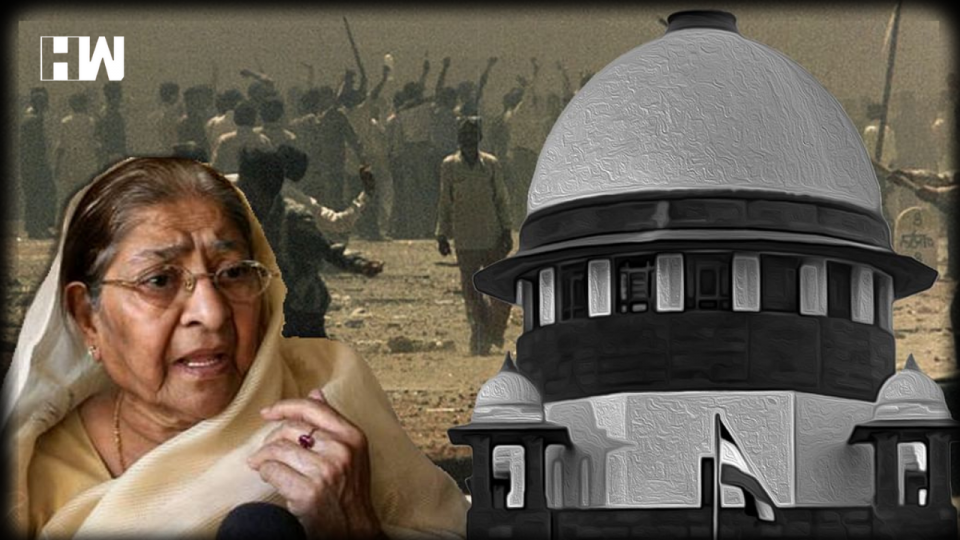New Delhi : The Supreme Court on Tuesday objected to Zakia Jafri – the widow of Congress MP Ehsan Jafri, who was killed in the 2002 Gujarat riots – alleging “collaboration” between the SIT probing the violence and some of the accused, including then Gujarat Chief Minister Narendra Modi, given a clean chit.
“Collaboration is a strong term for a SIT constituted by the court,” a three-member bench of Justices AM Khanwilkar, Dinesh Maheshwari and CT Ravikumar said in response to senior advocate Kapil Sibal talking about “glaring evidence of collaboration” and asking “Was (the) SIT saving some people?”
“It could be collaboration with the police. How can you say the SIT appointed by the court indulged in collaboration? Collaboration is a strong term for an SIT constituted by the court,” the judges said.
“The same SIT filed chargesheets in other cases… and the accused were convicted. No such grievance in those proceedings…” they added.
Earlier Mr Sibal, who is also a senior member of the Congress party and is appearing for Zakia Jafri, underlined the point he made in court last week, claiming “SIT did not probe key documents… tapes”.
“(There is) glaring evidence of collaboration with the accused when it comes to the SIT. Political class also became collaborators. SIT did not probe key documents and sting operation tapes, did not seize mobile phones. Was SIT saving some people?” Mr Sibal asked.
“Even when complaints were made, the names of offenders were not noted. This shows collaboration of the machineries of the state. In almost all cases copies of FIR (were) not given,” he added.
“What became the ultimate victim in this case was justice itself,” the Congress leader declared.
Last week Mr Sibal also argued that the 2002 Gujarat riots and the 1984 Sikh riots were similar in the way the attackers hunted for their victims.
“I was living at Maharani Bagh and there were houses of two Sikh gentlemen that were already identified by the mob. Similarly, Muslim houses were identified during the 2002 riots,” he said.
He argued the team tasked with investigating the riots conducted no investigation at all.
“The SIT itself should be investigated. It did not do its job. It was an act of protection… The SIT only worked to protect the VHP, Bajrang Dal, RSS members…” he said.
Mr Sibal also contended the police and SIT “collaborated and were rewarded handsomely”; “SIT chief was made High Commissioner of Cyprus. Ahmedabad Police Chief’s call records show he conversed with accused but he was later promoted as DGP of Gujarat,” he said.
Ehsan Jafri was among 68 people killed at the Gulberg Society in Ahmedabad on February 28, 2002 – a day after the S-6 coach of the Sabarmati Express was burnt at Godhra, killing 59 people and triggering riots in Gujarat.
The SIT submitted its closure report in February 2012 – a decade after the riots – and exonerated Prime Minister Modi and 63 others, citing “no prosecutable evidence”.
The Supreme Court has started hearing this case after multiple adjournments.
As an independent media platform, we do not take advertisements from governments and corporate houses. It is you, our readers, who have supported us on our journey to do honest and unbiased journalism. Please contribute, so that we can continue to do the same in future.

